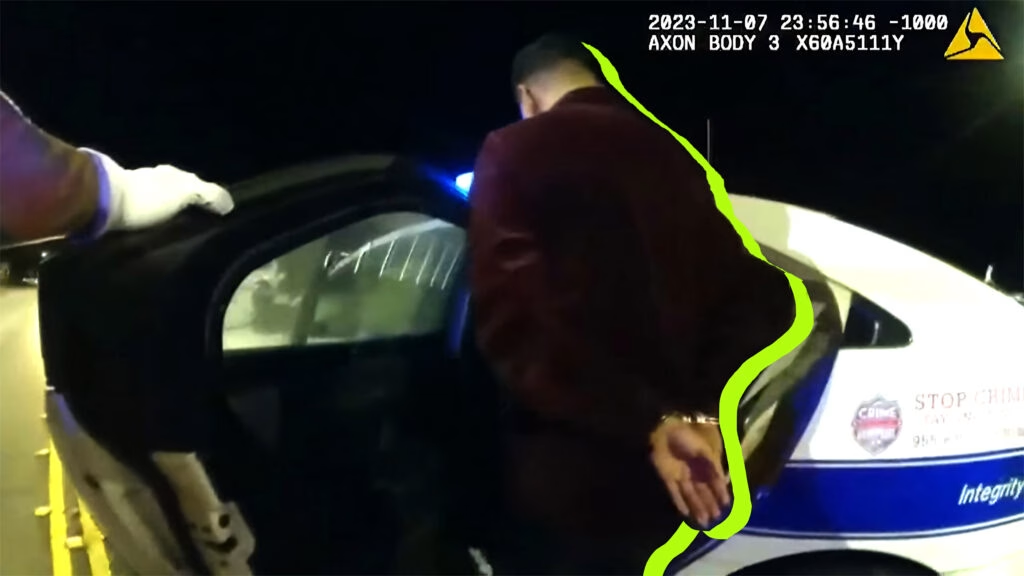Police departments are supposed to protect and serve, but recent events in Hawaii have raised serious questions about how sobriety checkpoints are being enforced. The Honolulu Police Department (HPD) is now facing a lawsuit from the American Civil Liberties Union (ACLU) of Hawaii, alleging that they have arrested numerous sober drivers on DUI charges. This situation not only highlights potential misconduct but also sheds light on a troubling trend that could be occurring nationwide.
What’s Going On with Sobriety Checkpoints?
Sobriety checkpoints are designed to keep our roads safe by identifying impaired drivers. However, the ACLU claims that the HPD has been arresting drivers who show no signs of impairment, inflating their arrest statistics to secure federal funding for these checkpoints. Between 2022 and 2024, the HPD reportedly arrested 129 individuals for DUI, all of whom had a blood alcohol content of exactly 0.00. This raises eyebrows—how can so many sober individuals be arrested without any evidence of impairment?
The ACLU argues that these inflated numbers are not just a statistical anomaly; they are indicative of a systemic issue within the department. The lawsuit represents drivers who were sober at the time of their arrests, suggesting that the HPD may be prioritizing arrest statistics over actual public safety.
The Impact of Arrests on Individuals
Imagine being pulled over, only to find yourself arrested despite being completely sober. That’s exactly what happened to individuals like Sara Poppinga, Tanner Pangan, and Ammon Fepuleai. Fepuleai shared his experience, describing the mental and emotional toll of being arrested. “It really impacted me mentally and internally,” he said, emphasizing that the trauma of the arrest altered his perception of law enforcement. Many people view police officers as protectors, but experiences like Fepuleai’s can shatter that trust.
The HPD has stated that they take these allegations seriously and have initiated an investigation into all impaired driving arrests dating back to 2021. However, the damage to public trust may already be done.
Are Other Police Departments Facing Similar Issues?
Hawaii isn’t alone in this troubling trend. In Tennessee, police have faced scrutiny for arresting over 600 sober individuals for DUI since 2017. In one notable case, a young man was arrested based solely on an officer’s guess that he had used marijuana. His blood test later proved he was sober, leading to a lawsuit against the officers involved. The judge dismissed all charges against him, allowing the civil rights trial to proceed.
These incidents raise critical questions about how sobriety laws are enforced across the country. Are police departments under pressure to produce arrest numbers, leading to wrongful arrests? It seems that the answer may be yes, and this could be a national pattern.
What Does This Mean for Public Trust?
The ramifications of these arrests extend beyond individual cases. When police departments arrest sober individuals, it undermines public trust in law enforcement. People may begin to view sobriety checkpoints not as safety measures, but as tools for arbitrary arrests. This breakdown in trust can have long-lasting effects on community relations and public safety.
As these lawsuits unfold, they may prompt a reevaluation of how sobriety checkpoints are conducted and how police departments are held accountable for their actions. It’s essential for law enforcement to prioritize genuine public safety over statistics that can be manipulated for funding.
The big takeaway? This situation isn’t just about the legal battles ahead; it’s about restoring faith in law enforcement. Communities deserve transparency and accountability. If you find yourself in a similar situation, knowing your rights and understanding the legal landscape can empower you to navigate these challenges more effectively. Start by staying informed about local laws and advocating for fair treatment on the roads.

